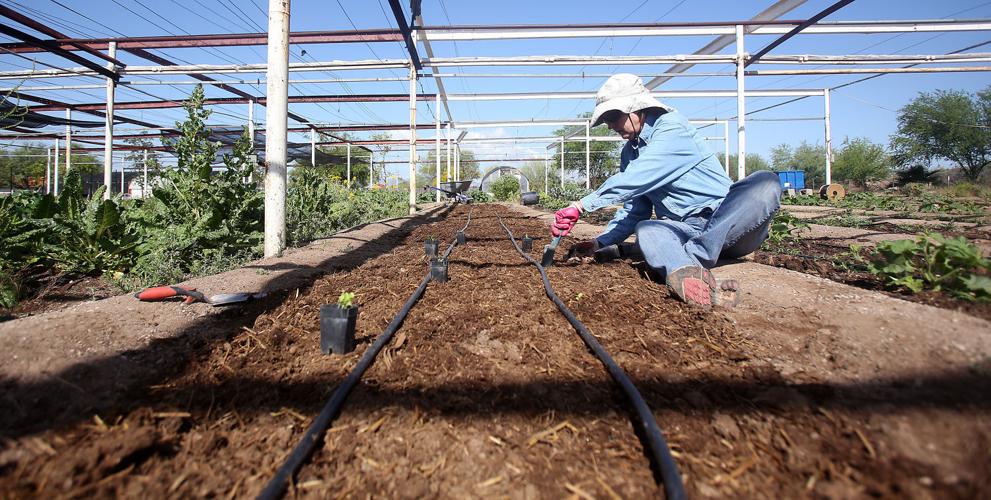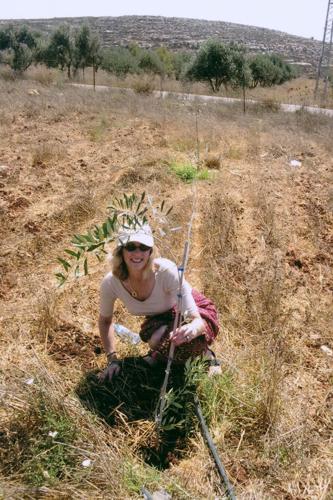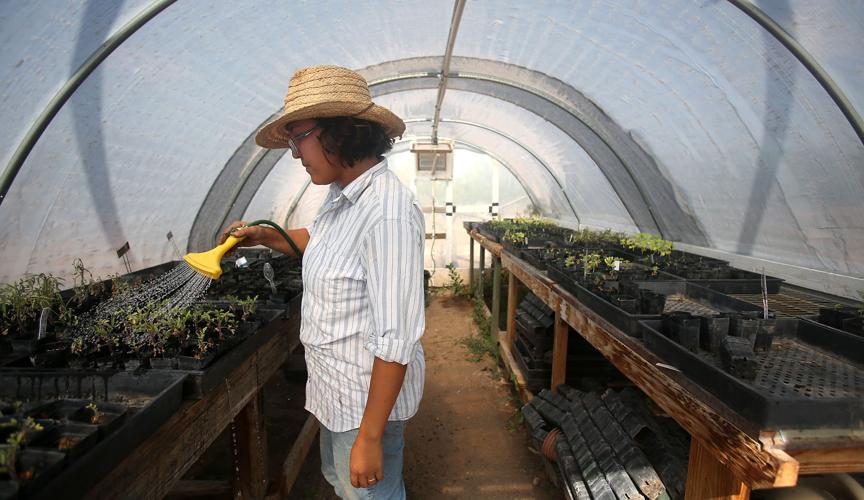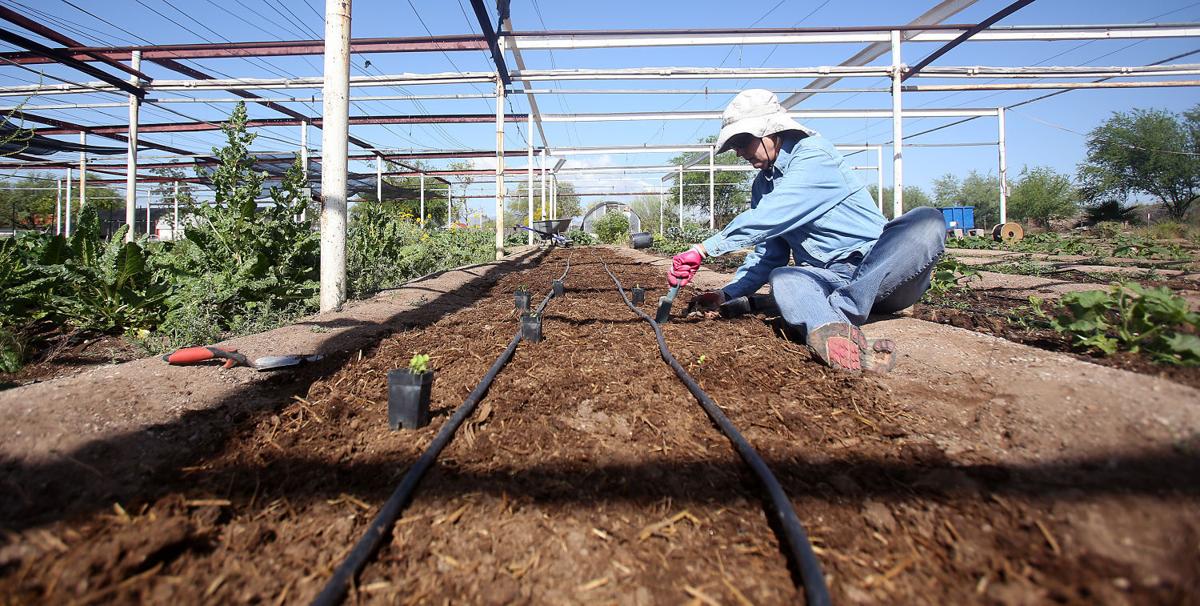We're kicking off December with 12 Days of Nonprofits — a 12-day celebration of the many local organizations that provide needed services to our community.
When David Cutler lost his wife, Felicia, more than a decade ago, he wanted to do something in her honor.
Her dream was to both feed people and teach them to feed themselves — so Cutler started Felicia’s Farm.
The nonprofit, under the Izi Azi Foundation, grows its own food and donates 100% of it to soup kitchens and other organizations that feed people in need.
“Food insecurity persists,” says executive director Cathy Lolwing. “Despite larger organizations working for it, we still need smaller organizations to fill in the cracks.”
“I know the cracks still exist and we’re going to keep going until everyone's fed,” she says.

Felicia Ann Cutler, who died in 2009, had a vision to “feed the people and teach them to feed themselves.”
Lolwing estimates that the farm grows 700 pounds of produce each week across its two growing areas on River Road, plus there are about 130 dozen eggs produced weekly. The farm grows its produce seasonally — right now, it’s veggies such as lettuce, radishes, cabbage, beets and beans.
Once the food is ready to be harvested, it’s delivered to organizations across Tucson, South Tucson, Marana and Arizona tribal areas, such as Casa Maria, Pascua Yaqui Tribe Pantry, Casa San Juan and the new Tucson Food Project. Some organizations cook the food that’s donated to them, while others place the produce in family bags for people to take.
“Helping Felicia’s Farm really helps sustain different organizations,” Lolwing says.
Each year, Felicia’s Farm reaches about 5,800 people, she says.
“The issue of hunger has been around us for a long time and every day we see people in (road) medians with signs,” says board president Marv Kirchler. “The tragedy is that we still have hungry people and hungry children, so being part of a solution is very, very rewarding.”

Farm manager Sofia Montes waters plants. Everything on the farm is grown naturally and according to the seasons. Waste from goats, chickens and horses is utilized as fertilizer.
Felicia’s Farm is working on a third location, dubbed the Felicia’s Farm Annex, on Stone Avenue near Hem & Her Bridal, which is owned by Kirchler’s wife Joyce Feickert.
“Marv was suggesting to create a garden at Hem & Her Bridal so we could have a public green space and grow for public education,” Lolwing says.
“I think the addition of the space in the 85705 zip code — which is really underserved — gives us a connection in a central part of Tucson right where there is poverty and hunger,” Kirchler says.
Eventually, the team hopes to offer classes at the annex — from nutrition to growing 101 and growing 201. They also hope to have educational stations for visitors to walk through.
How to help
Monetary donations can be made to Felicia’s Farm at feliciasfarm.org/donate.
Felicia’s Farm also needs volunteers, who can participate in a variety of ways from gardening to cleaning to administrational duties. Anyone interested can email feliciasfarm@gmail.com.
“It’s beautiful to see the community come together. Tucson’s such a giving town and they’ve supported Felicia’s Farm from every kind of work — painting, harvesting, digging, delivering,” Lolwing says. “To be part of it is just an honor, really.”







